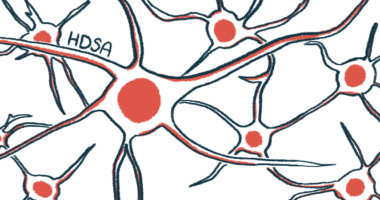Huntington’s Disease: Can Aspirin Help?

Neurodegenerative diseases are caused by excessive neuronal death in distinct brain areas. For example, in Huntington’s disease the striatum is a specifically vulnerable region and disease may benefit from enhanced neuronal protection against oxidative stress. Glyceraldehyde 3-Phosphate Dehydrogenase, known as GAPDH, is a central enzyme in glucose metabolism, but it also plays an additional role in cell death induction. When toxic products are produced by neurons, GAPDH migrates from the cytosol to the nucleus resulting in cell death.
A research team at the Cornell University found that a component of aspirin binds to GAPDH preventing it from triggering cell death. Their data was published in a study entitled “Human GAPDH Is a Target of Aspirin’s Primary Metabolite Salicylic Acid and Its Derivatives” in the journal PLOS ONE.
In mammals, the primary action of aspirin and of its primary breakdown product, known as salicylic acid (SA), has been attributed to the inhibition of enzymes involved in inflammation. However, experimental data suggest there are additional targets responsible for aspirin’s pharmacological effects. This research team has previously established a screening system in plants to find SA binding partners, which identified GAPDH. In the current study, they demonstrated that human GAPDH, like its plant counterpart, binds SA and suppresses both GAPDH nuclear translocation and cell death induced by a neurotoxin.
“The enzyme GAPDH, long thought to function solely in glucose metabolism, is now known to participate in intracellular signaling,” co-author Solomon Snyder said in a press release. “The new study establishes that GAPDH is a target for salicylate drugs related to aspirin, and hence may be relevant to the therapeutic actions of such drugs.”
Researchers also discovered a natural derivative of salicylic acid from the Chinese medical herb licorice that binds strongly to GAPDH and is more effective than salicylic acid at blocking GAPDH’s movement into the nucleus and inducing cell death.
The study shows that the development of new and better salicylic acid-based treatments may help prevent excessive neuronal loss in neurodegenerative diseases such as Huntington’s disease. “The discovery of SA derivatives, which are 3–30 times more efficacious than SA, further supports the possibility that salicylates may be of therapeutic value in the treatment or even prevention of several widespread and devastating neurodegenerative diseases including Alzheimer’s and Parkinson’s diseases,” the authors concluded in their study.






